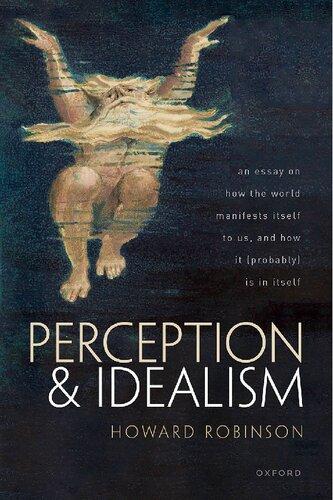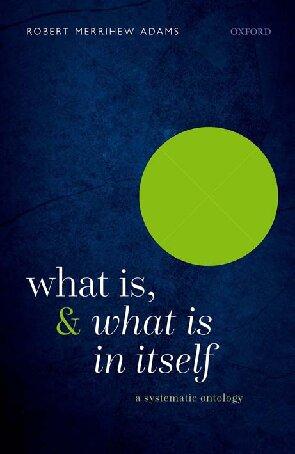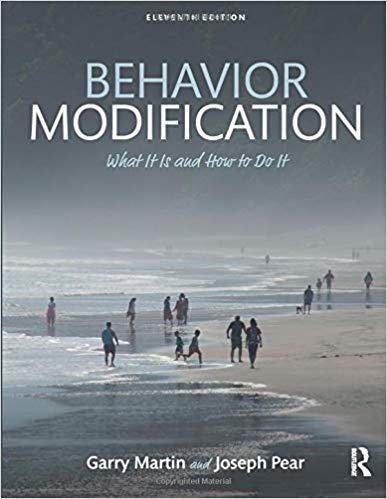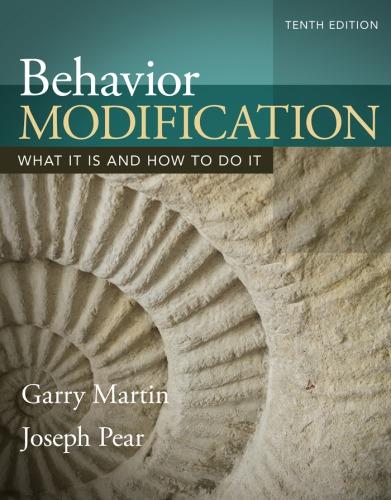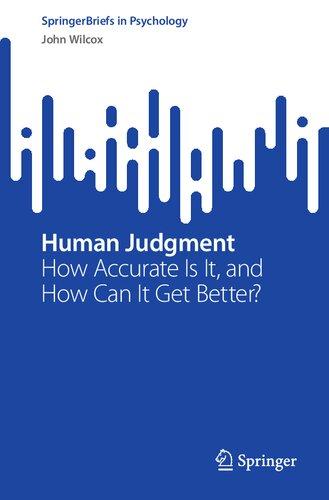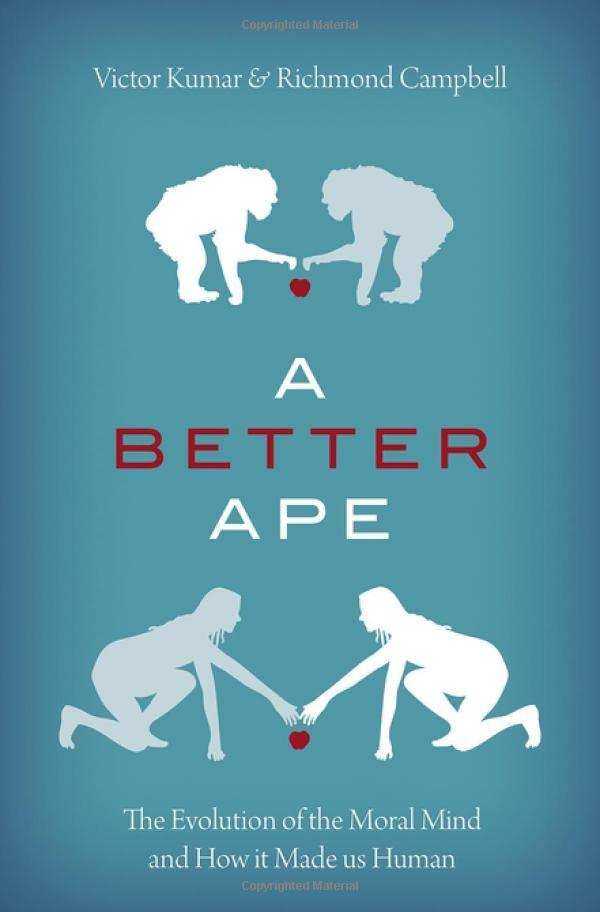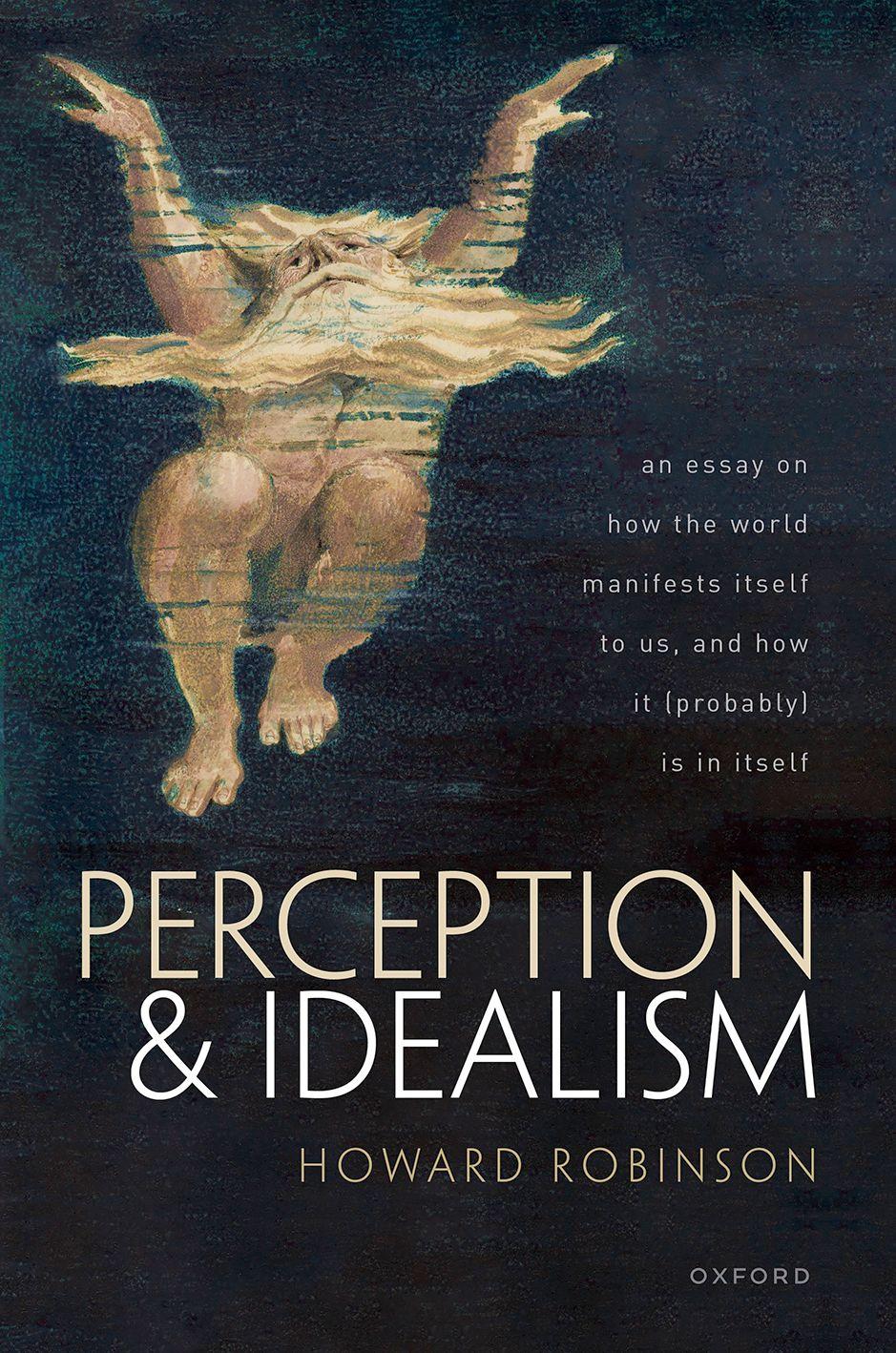Acknowledgements
Thisbookisasuccessortomy Perception, (Routledge,1994)andtothelast chapterof MatterandSense (CambridgeUniversityPress,1982),andvarious thingsthatIhavewrittenonperceptionandBerkeleianidealismsincethose books.
‘TwoBerkelianargumentsaboutthenatureofspace’,inT.Airaksinenand B.Belfrage(eds), Berkeley ’sLastingLegacy:ThreeHundredYearsLater, CambridgeScholarsPress,2011,79–90,ispublishedwithpermissionfrom CambridgeScholarsPress.
LargepartsofChapter1aretakenfrom ‘Thefailureofdisjunctivismtodeal with “philosophers’ hallucinations ”’,inFionaMacphersonandDimitrisPlatchias (eds), Hallucinations ,MITPress,2013,313–30,andIamgratefultoMITPressfor permissiontousethismaterial.
Extensivematerialfrom ‘JohnFoster’sandMichaelDummett ’sargumentsfor idealism ’ in(eds)PaulGockeandRalphWeir, FromExistentialismto Metaphysics:thePhilosophyofStephenPriest, PeterLang,2021,123–36,isused in10.2and11.4.IamgratefultoPeterLangforpermissiontousethismaterial. Ialsomadeextensiveuseofmaterialfrom ‘Idealism’,inB.McLaughlin, A.Beckermann,andS.Walter(eds), TheOxfordHandbooktothePhilosophyof Mind,OxfordUniversityPress,2009,186–205,whendiscussingthe ‘ powers ’ conceptionofmatter,andwhenconsideringBerkeley’sso-called ‘masterargument’.IhavedrawnonmanyotherthingsIhavepublished,butnotsodirectlyas withthese.
Personalthanksaremorecomplicated.TwoOUPreadersmadeveryuseful comments,whichledmetomakevariouschanges,mostseriously,tosignificantly expandthe finalchapter,andPeterMomtchiloffhasbeen,asusual,verysupportive.MichaelPelczaralsoreadacompletedraftandmadeveryusefulcomments. IhavebeendiscussingperceptionwithMikeMartinsincethelate1980s,andhe alsoreadacompletedraftofthebook,withcomments.Certainchapterswereread toanNYUgrouphostedbyDavidChalmersandNedBlock,andtotheCUNY seminarrunbyDavidRosenthal.Iamverygratefulforcommentsfromboththese groups.WhatlittleunderstandingIhaveofquantumtheorycomesfromattendingDavidAlbert’swonderfullylucidgraduateseminarsatRutgers,andfrom bringingallmyproblemstoBarryLoewer,whopatientlytriedtogetmeto understand.
Icannotrememberhowmuchofithasbeenreadtotheconstantyet fluidgroup ofphilosopherswhohavemetinwhateverwasmyresidenceinOxfordeversince
thelate1970s,butIknowthatPenelopeMackie,BobFrazier,AnitaAvramides, RalphWalkerLesleyBrown,JulieJack,AdrianMoore,andothershavemade manyvaluablecontributions.
MydebttoCentralEuropeanUniversity,bothtocolleaguesandstudents,can hardlybemeasured.IamgratefultoPhilipGoff,forourdiscussionswhenhewas withus;KatalinFarkas,whohassupportedandchallengedmeeversincemy arrivalinBudapestin1994,andcontinuestodosoinVienna;andTimCrane, whosubjectedmyargumentsonintentionaltheoriestodeepandvitalcriticism.
Thankstothefactthatmywife JocelynWogan-Browne heldadistinguishedchairintheEnglishDepartmentatFordhamUniversity,Iwasableto workforpartofeachyearfrom2011to2019inFordham’swonderfuluniversity library themostcomfortableworkinglibraryIhaveeverknown.Iamgratefulto thephilosophydepartmentthereformakingmeaVisitingScholar,andtothe JesuitsofFordham,fortheethostheymaintainattheiruniversity.Mydeepest personaldebtistoFrPatrickRyan.
IamalsogratefultoBlackfriarsHall,OxfordformakingmeaResearchFellow, andtoBrianDavies,O.P.,formakingthatpossible.
IhadtheprivilegeofteachingadvancedandgraduatecoursesatRutgers UniversityforfoursemestersduringmytimeinAmerica,andofbeingaSenior FellowoftheirCenterforPhilosophyofReligion,thankstoDeanZimmerman,to whosesupportandfriendshipIoweagreatdeal.
Ifoneholdsviewswhichhavebeen,attheirbest,unfashionable,and,worse,are oftenthoughtdownrightweird,supportfromphilosopherswhoarenearertothe mainstream,suchasthoseIhavethankedabove,makesamajorcontributionto one ’ssanity.Nevertheless,closefriendshipwithsomeonewhoseviewsarenoless weirdthanone’sown,especiallyiftheyhavetheuniquelypowerfulphilosophical intellectofJohnFoster,isevenmorecentraltomaintainingone’smorale. Therefore,IowemosttothelateJohnFoster,withwhomIdiscussedtheissues treatedinthisbookfromthelate1960suntilhediedin2009.Hespenthiswhole careerasaFellowofBrasenoseCollege,Oxford.Hediedaftermorethanadecade ofpainfulcancer,duringwhichtimehewrotethreebooks.AndIcouldnotcount thenumberofdinnersIsharedwithJohnandHelenattheirhomeinHeadington from1970untilHelen’sdeathin2014.IdedicatethisbooktoJohnFoster,but rememberthembothwiththedeepestgratitude.
Contents
Introduction1
1TheAimofThisBook1
2PartI:ChapterbyChapter2
3PartII:ItsRationalethroughtheChapters3
4TheNatureofSense-Data4
PARTI:HOWTHEWORLDMANIFESTS ITSELFTOUS
1.TheCausalArgumentforSense-data, ‘Philosophers’ Hallucinations’,andtheDisjunctiveResponse11
1.1Philosophers’ Hallucination:IntroductoryRemarks11
1.2PreliminaryThoughtsontheRoleofCausationinPerception12
1.3Philosophers’ Hallucinations:TheArgument14
1.4StrategiesforOpposingtheCausal-HallucinatoryArgument17
1.5DisjunctivistAccountsofHallucination:IntroductoryRemarks22
1.6DisjunctivistAccountsofHallucination;(i)Martin’ s ‘Indiscriminability ’ Account22
1.7DisjunctivistAccountsofHallucination;(ii)Fish’ s ‘Belief ’ Account26
1.8DisjunctivistAccountsofHallucination;(iii)Soteriouand ‘SeemingtoExperience ’ 28
1.9NaïveRealismandPhilosophers’ Hallucinations:Conclusion30
2.NaïveRealismandtheArgumentfromIllusion32 2.1Introduction32
2.2DisjunctivismandIllusion35
2.3FrenchandPhillips’‘Austere’ NaïveRealism,andWhyItIs NotasAustereasTheyHope40
2.4Brewer,Campbell,andPerspectivalism42
2.5ThePerspectivalismofFishandKalderon45
2.6GenoneandtheDoxasticTheory47
2.7Conclusion48
3.IntentionalityandPerception(I):TheFundamentalIrrelevance ofIntentionalitytoPhenomenalConsciousness49 3.1Introduction49
3.2Searle’sAppealtoIntentionalityinPerception,andthe IlluminatingContrastwithCrane51
3.3Presentationalityandthe ‘BlockingFunction’ 58
3.4Crane’sOwnAccountofIntentionality61
3.5TheIntentionalist’sDilemmaandItsHistory63
3.6HowAppealtoTransparencyHelpsNo-one66
4.IntentionalityandPerception(II):AttemptstoArticulatethe ‘Content’ and ‘Object’ Distinction69
4.1IntroductoryRemarks69
4.2ModernResponses(i):Smith: ‘PhenomenalObjects’ AreNot ObjectsintheRelevantSense70
4.3ModernResponses(ii):TheContentsofSubjectiveExperienceas Abstractions:Dretske,Lycan,andJackson72
4.4ModernResponses(iii):ContentsasAbstract:Johnstonand Schellenberg74
4.5ModernResponses(iv):SchellenbergonDiscriminatoryCapacities78 4.6Conclusion79
5.SingularReferenceandItsRelationtoIntentionality80 5.1Introduction80
5.2Brentano’sHowler81
5.3MillasSupposedProponentofDirectReference82
5.4IntentionalityandtheDistinctiveCharacterofThought:Having aConceptionofanObject,MentalFiles,andMentalMaps84
5.5ANoteon ‘Content’ and ‘Object’ 87
5.6ADifferentModelofIntentionalityforSensations?88
5.7 ‘Representation ’ inaReductiveSense89
5.8Conclusion:WorldMapsandPerception90
6.Objectivity:HowIsItPossible?91 6.1Introduction91
6.2DirectRealismandObjectivity92
6.3TheCausal-SemanticAccountofObjectivity97
6.4BurgeonDistilCausesandtheExperienceof ‘HowThingsLook’ 100
6.5TheTransitiontoHume102
6.6DavidPapineauandtheManifestImage105
6.7ConstancyandCoherence:theHumeanAccountofObjectivity107 6.8Conclusion114
7.SemanticDirectRealism,CriticalRealism,andthe Sense-DatumTheory115
7.1TheSituationSoFar115
7.2HowWeMightUnderstandDirectness116
7.3SDRandIntentionalism117
7.4SDRandRelationalism122
7.5CriticalRealism123
7.6TheSense-DatumTheoryandSDR125
8.BuildingtheManifestWorld126 8.1Introduction126
8.2TheRoleofJudgementin,andItsIntegrationwith,Perception127
8.3TheSense-DatumTheoryIsNotanErrorTheory132
8.4OurSpatialWorldandVisualExperience134
8.5PerceivingObjects,NotJustQualities135
8.6AvailabilityandPhenomenology141
8.7Sense-Data,DirectRealism,andtheCommon-Sense UnderstandingofPerception142 8.8Conclusion143
PARTII:WHATTHEWORLDIS,INITSELF
9.TheProblematicNatureoftheModernConceptionofMatter147 9.1Introduction147
9.2SensibleQualities,theNatureofMatterandtheRegressofPowers147 9.3ContemporaryDiscussionofthePowersRegress152 9.4GroundingBasicPowers156
9.5Quiddities,andSimilarDevices160
9.6TheHumeanAccountofCausation:AgainstthePrimitiveness ofRegularity162
9.7ScientificRealismaboutQuantumTheory,andCommon-Sense165
10.TwoSuggestiveBerkeleianArguments174 10.1Introduction174 10.2TheSense-DependenceofQualities174 10.3ThePhysicalWorldandtheNatureofThought178
11.BishopBerkeleyandJohnFosteronProblemswithPhysical RealismaboutSpace187
11.1Introduction:TwoBerkelianArgumentsabouttheNatureofSpace187 11.2Mites,Men,andObjectiveSpace187
11.3Newton’sThoughtExperimentsandAbsoluteSpace192 11.4JohnFosteronSpatialTopologyandEmpiricalReality198 11.5Conclusion205
12.MentalistAlternativestoBerkeleianTheism,andTheirFailure207 12.1Introduction207 12.2Hume–MillPhenomenalism208 12.3Panpsychism213
12.4IdealismwithoutGod220 12.5GodastheSourceoftheLawsofNature221 12.6Conclusion224 GeneralConclusion225
Bibliography 227 Index 233
Itisastandardfeatureofmodernphilosophy,atleastfromLocke,totietogether thequestionsofhowweperceivetheworldandwhatwehavereasontothinkthe worldislikeinitself.Thisisanaturalconnection,becausethequestionsofhowwe perceiveit,andwhatkindofconceptionofitwecanbestformonthebasisofthat modeofperception,areobviouslyintimatelylinked.Ifoneisanaïverealist,this wouldseemtolicenseabeliefthattheworldisbroadlythewayitappears,forifit werenothowcouldperceptionbeastraightforwardawarenessofthewaythe worldis,asthenaïverealistclaims?Butthenthenaïverealistfacestheproblemof explainingthedifferencebetweentheworldashedirectlyapprehendsit,andthe pictureoftheworldthatscienceseemstodeliver.Lockewasnotanaïverealistbut arepresentativerealist,andthatclearedthewayforhimtosupportthecontemporaryscientifictheorythatsecondaryqualitiesarenot,themselves,intrinsicto thephysicalworld,butarefeaturesofhowtheworldaffectsus.Humeresponded tothisbyclaimingthat,oncenaïverealismhasbeenabandoned,wehavelostall reasontoholdontoanycommon-senseconceptionoftheworld,including Locke’srepresentativetheory.
[representativerealism]hasnoprimaryrecommendationeithertoreasonorthe imagination,butacquiresallitsinfluenceontheimaginationfrom[naïve realism](Hume,1739/2000: Treatise, I.4,2.47)
Onceonehasdecidedthattheworlditselfisnottheimmediatecontentsofsense experience,but ‘ideas’,or,inmoremodernjargon, ‘sense-data’ or ‘qualia ’ ,one mustsurelyseekforevidenceotherthan,orinadditionto,perceptiontodecide whattheworldinitselfislike.Mainlybecauseofhisviewsoncausationand explanation,Humereachedscepticalconclusionsaboutwhatwecouldrationally believeaboutanyworldbeyondourownsense-data.Thisscepticismdeveloped intothephenomenalismarticulatedbyJ.S.Mill,Russellatcertainperiods,the positivistsandrecentlyrevivedbyMichaelPelczar.Accordingtothistheory, physicalobjectsarejust,inMill’sphrase, ‘thepermanentpossibilityofsensation’ : this ‘possibility’ isnotgroundedonanyfurtherreality. PerceptionandIdealism:AnEssayonHowtheWorldManifestsItselftoUs,andHowIt(Probably)IsinItself. HowardRobinson,OxfordUniversityPress.©HowardRobinson2022.DOI:10.1093/oso/9780192845566.003.0001
Mostphilosophershavenotreactedtotherefutationofdirectornaïverealist theoriesofperceptioninsuchascepticalorreductionistway,but,likeLocke,tryto giveapositiveaccountofwhatliesbehindtheworldofappearance.
PartIofthisbookconcernsthephilosophyofperception,andseekstodefenda versionofthesense-datumtheory.Theconclusion,inChapter8,isthatin perceptionweareawareof thewayphysicalobjectsmanifestthemselvestocreatureslikeourselves. Itcontainsadirectrealistelementinthejudgementalor informationalcomponentinperception,butisasense-datumtheoryinrelation tothephenomenalcomponent.Soweperceive thethingsoutthere, but intheway theymanifestthemselvestous. Thisleavesopenthequestionofthenatureof physicalobjectsthemselves,asagainstthewaytheymanifestthemselvestous. ThislattertopicistheconcernofPartII.
2PartI:ChapterbyChapter
PartIisanattempttobringuptodatetheargumentsinmy Perception of1994. Chapter1presentsthecausal-hallucinatoryargumentagainstnaïverealism,or relationism,asitisoftencalled,andarguesthatthedisjunctiviststrategiesagainst thisargumentaregrosslyimplausible.InChapter2Iarguethatrelationism cannotcopewiththemuchmoreprosaicphenomenainvokedbythe ‘argument fromillusion’.Thesechaptersdisposeofnaïverealism/relationism.
Chapters3,4,and5argueagainstwhatarecalledintentionalistorrepresentationalisttheoriesofperception.Chapter3statesthebasicargumentagainstthe theory,andChapter4looksatthevariousstrategiesthatintentionalistshaveused torespondtoobjections,and findsthemwanting.Chapter5looksmoregenerally athowsingularreferenceandintentionalityarerelated,anddoessoinawaythat reinforcestheconclusionthatintentionalityisnotapropertyofphenomenal content.
Chapter6looksintowhatitisaboutourperceptionthatmakesitseemtobe aboutexternalthingsandnotjustsubjectivefeelings.Iconsider,and findinadequate,theargumentofMcDowellandothersthattheonlywaysuchanotioncould beacquiredisifwewereinfactdirectlyawareofexternalthings.IalsorejectTyler Burge’sargument,recentlysupportedbyDavidPapineau,thatcausalsemantics explainobjectivity.FinallyIdefendtheHumeanviewthatitisthewayexperienceis structuredandorganizedthatendowsuswiththenotionofobjectivity.
InChapter7Iarguethatintentionalistsandevenrelationalistscanonlyachieve whatIcall semanticdirectrealism,andnot phenomenaldirectrealism. Thatis,itis thejudgementalorinformationalcomponentthatreferstoexternalreality,not directlythephenomenalcontent.
Thisconclusionissomewhatmodi fiedinChapter8,inwhichItrytoexplain howourmanifestworld theworldofcommonexperience,orthewaytheworld
manifestsitselftocreatureslikeus canbebuiltupfromoursensoryinputand ourinnateresources.
3PartII:ItsRationalethroughtheChapters
WhilePartIconsidershowtheworldappearstothelikesofus,PartIItacklesthe questionofwhatitislikeinitself,pressingthecaseforaBerkeleianidealism.But Iworktowardsthisby firstlookingatwhatmightbeconsideredorthodox scientificconceptionsofmatter,inChapter9.FirstIdiscussthe powers or energy conceptionofmatterthatdominateswhatonemightcallourpostNewtonian conception.ThisdominationcamethanksbothtotheworkofRogerBoscovitch, theeighteenth-centuryCroatianJesuitwhoformulatedthe firstcoherent fieldor powers(asopposedtothetraditional ‘hardbilliardball’)modeloftheatom,and totheroletheconceptsofenergy, field,andforceplayinlaterphysics.Itakeup theargumentthatsuchaconceptionofthephysicalworldonlymakessense withinanidealistframework.Then,inthesamechapter,Iconsidersomefeatures ofDavidLewis’squiddities,andMichaelEsfeld ’ s ‘matterpoints’.The ‘ powers ’ conceptionarisesprimarilyfromscience,Lewis’sandEsfeld’saremorepurely philosophicalinmotivation,butarealsomeanttoelaborateaminimumontology forthephysicalworld,inthecontextofmodernscience.FinallyinChapter9,Itry, rathergingerly,toconsidersomeaspectsofthequantumconceptionofmatter. Myobjectivethereistoshowthat,althoughscienceisusuallypresentedasa sophisticateddevelopmentofcommonsense,quantumtheoryeitherfallsintoa formofidealism,intheformoftheCopenhagentheory,orresortstoworldviews farmorebizarrethanBerkeleianidealism.
Havingtriedtoshowtheshortcomingsofwhatmightroughlybecalledmodern scientific,orsciencebased,formsofphysicalrealism,Imoveoninthenexttwo chapterstoconsiderargumentsforidealismthataremorepurelyphilosophical andmorecloselybasedontraditionalphilosophicaltexts,particularlythoseof Berkeley.ThreeofthefourargumentsinthesechaptersdrawontopicsinPartI. Oneofthemdevelopstheintuitionthatqualitiesareessentiallycreaturesof sensation,theothertwoonhowthecontentsofexperiencedeterminethenature ofphysicalspace.Thefourth,whichisinthesecondpartofChapter10,concerns notperception,butthought,andcanbemoreeasilyalignedwiththeHegelian thantheempiricisttradition.
Chapter10considerstwosuggestive,ifnotconclusive,argumentsinBerkeley. Oneconcernstheideathatqualitiesarenecessarilymental.Idrawonarguments foundinRobertAdamsandMichaelDummett.TheotherderivesfromBerkeley’ s claimthatwecannotformtheconceptionofaworldthatisnotdependenton mind.Ilookattheclaimthatourconceptionoftheworlddrawsonfeatureswhich arenecessarilycontributedbytheunderstanding.
ItderivesfromwhatisoftencalledBerkeley’ s ‘masterargument’,totheeffect thatwecannotconceivetheunperceived.Iconsidervariousargumentsthat suggestthattherearevitalfeaturesofourconceptionofphysicalrealitythat presupposethepresenceofmind.ThisargumentcouldbetakeninaKantian, orinaneo-platonicmanner,thoughIpreferthelatter.
Chapter11looksatargumentsthatclaimtoshowthatphysicalspaceisminddependent.I firstdealwithtwoargumentsthatBerkeleyhimselfuses,thenJohn Foster’swhollyoriginalproofthatthetopologyofphysicalspaceisessentially empirical.
Bythispoint,IhavepresentedasstrongacaseasIamablethattheworld dependsessentiallyonsomethingmental.Ithasbeenmyobjectivetodefend Berkeleianidealism,butthatisnottheonlymentalistpictureavailable,because thereisalsopanpsychismandbarephenomenalism.ItismyaiminChapter12to showthatnon-theisticphenomenalismisnotdefensible,despiteMichaelPelczar’ s recentsubtleeffortstoreconstructit:norpanpsychism,atheoryonceregardedas bizarre,butwhichnow,thankstotheworkofGalenStrawson,PhillipGoff,and others,isalmostfashionable.IendthechapterbydefendingJohnFoster’ s argumentthatwecannotavoidlawsofnature,andthattheseentailtheexistence ofalaw-maker,whomitisnaturaltoidentifywithGod,thussupportingthe Berkeleianoption.
IhopeIhaveshownthatthetwopartsofthisbookarenaturallyconnected. OnewayinwhichtheyaredifferentisthatmostofwhatisinPartIaboutthe philosophyofperceptionismaterialthatwillnotbedismissedassoeccentricasto bebeyondthepale.PartIIrunstherisk,simplybecauseofitsconclusions not, Ihope,becauseofitsstyleofargument ofbeingdismissedastooeccentric.If someoneistemptedtothatreactionIwouldasktwothings.First,thatthatwould notleadthemtobedismissiveofPartI,bya ‘guiltbyassociation’:second,that theytakePartIIasraisingrealproblemsfacingtheconceptofmatter,andsois,at least,alegitimateraisingof aporia, evenifonethinkstheseproblemsmusthavea morerealistsolution.
Thereremains,however,aratherdifferentintroductoryissuethatmustbe addressedbeforeIplungeintothearguments.
4TheNatureofSense-Data
Thisbookisdividedintotwoparts.PartIconcernsthephilosophyofperception andinitIdefendwhatIlabelasa sense-datum theoryofperception.Itmight, therefore,helpifIstartbysayinghowIunderstandtheterm ‘sense-data’ forthe purposesoftheargumentsinthisbook.
Bothproponentsandopponentsofthetheoryofteninsistthatthedataare particulars or individuals. Thiscanleadtoproblemsifonefollowstheslogan, ‘ no
entitywithoutidentity’,foransweringquestionslike ‘howmanyvisualsense-data areyouhavingnow?’ or ‘asthebluepatchinyourvisual fieldaltersshapeand fadesslightly,howmanysense-dataareinvolved?’ Thecorrectanswertothese challengesistosaywhatC.I.Lewissaidwhendiscussingthedataofexperience.
Therearerecognizablequalitativecharactersofthegiven,whichmayberepeated indifferentexperiences,andarethusasortofuniversals;Icallthese ‘qualia’ (1929:121)
IdonotthinkthatthereisanysignificantdifferencebetweenLewis’suseof ‘qualia’ andmineof ‘sense-data’.Onecantalkofthemhavinginstances,which suggestsparticularity,butthatmerelyrecognizesthefactthattheycanbepresentedatdifferenttimesandtodifferentsubjects.Ifyouthink ‘instance’ commits onetoindividuality,thentakeisasshorthandfor ‘occasions ofpresentation,or phenomenalpresence’.Thecrucialpointisthattheyinvolvetheactualpresenceof thequalityinquestion,andnotmerelyrepresentationsofsuchqualities,asthe intentionaltheoryclaims.Howoneindividuatesthemisnotimportant,anymore thanitistodecidehowmanyimagesthereareonatelevisionorcinemascreenat anygiventime.Whatmattersisthatthereisaqualitativearray,thefeatures presentinwhichcanbepickedoutandidentified.
InthecourseofthebookIwillbedealingwithstandardobjectionstothe theory,includingtheclaimthatsense-dataconstitutea ‘veilofperception’,but thereisonelineofobjectionthatIwilldealwithhere,becauseitrelatesdirectlyto thetopicwehavebeenconsidering,namelythenatureofsense-data.Thisisthe claimthattheyareindeterminateandcontradictory,andsocannotbegenuine entities.
Hardinarguesasfollows:
Theempiricalevidenceinfavoroftheindeterminacyofvisualshapeandcolor undervariousconditionsofseeingseemsoverwhelming;weshouldtakeittobea phenomenologicalfact...Butacceptingindeterminacyintophenomenologyis onethingandincorporatingitintoontologyisanother...
Thesharpsensory-interpretativedistinctionseemstobeconsequentonastrict distinctionbetweenactandobjectofperception...Drawingthisdistinction appearstobeacoretacticofsense-datumtheoristsandleadsinturntothe mostdamagingproblemofall,thepressuretoassignincompatiblepredicatesto thesamesense-datum...Itmaybepossibleto findandarticulateappropriate pairsofphenomenologicalpredicatesthatwillcapturetherelevantsensory differencesandsimilaritiesbetweenthewaythattherocksinthewaterfall illusionseemstomoveandthewayinwhichtheydonotseemtomove,and likewiseforotherparadoxicalsensorypresentations.(1988:108–9)
So,accordingtoHardin,therearetwoseriousobjectionstothesense-datum theory.Theyarebothobjectionstothereificationofphenomenalcontentonthe groundsthatitfailstomeetthestandardnecessaryforbeinganentity,namely thatentitiesmustbedeterminateandmustnotpossessinconsistentproperties. Myresponsetoboththesepointsisessentiallythesame,namelythatthereisno suchthingasanindeterminateorinconsistentsensation;thereareonlywaysof characterizingsensationsinphysicalobjecttermswhichareindeterminateor inconsistent.
Hardin,likeothers,makesalotofphenomenasuchasthewaterfallillusionbut thereisanexampleofputativecontradictionmuchnearerhome,namelyfeeling dizzy.Ifyoufeeldizzy,thingsseemtogoroundwithoutactuallygettingany further.Theexperienceisdifficulttodescribeinawaythatdoesnotturnouttobe incoherent,butitwouldnotoccurtomanypeopletothinkofitasanincoherent experiencebecausewethinkofitasjustasensation ‘inthehead’ andnota representationofanapparentphysicalstateofaffairs.Isuggestthatinneithercase isthereanythingcontradictoryabouttheexperienceperse, onlythatthereisno physicalinterpretationofthescenethatdoesnotinvolveinconsistency.The situationis,Ithink,analogoustothatofanEsherpainting.Whatisthereisnot acontradiction;onlyifyouseeitasathreedimensionalscenedoesthecontradictionarise.Somethingsimilarappliestosensations:inthemselvestheyarejust astheyare,butattemptstorenderthemasrepresentationsofphysicalprocesses sometimesleadstocontradiction.
Asimilarapproachworksforindeterminacy.Firstitmightbehelpfulto distinguishbetweenindeterminacyandvagueness,wherevaguenessissomething thatallowsthegenerationofsoritesparadoxes.Soritesvaguenessisaphenomenonofconcepts;nothingrealcanbevagueinthisway.Indeterminacyisanother matter.Itseemstometobeunclearwhatabsolute physical determinacyis,and absolutedeterminacyforasecondaryqualitysuchascolourisparticularlyunclear. Wehaveanabsolutegeometricalnotionofshapeandsize,butwhetheranything quite fitsit,isanothermatter.IfItakeoffmyglasses,Ihavefuzzyimagesofthings. Itwouldbehard,ifnotimpossibletocreatephysicalthingslikethat,butitdoes notfollowthatsensationscannotbelikethat,oriftheyare,thentheycanonlybe ‘phenomenologically ’ realandnot ‘ontologically ’ .
Theviewthatthesense-datumtheoristshouldtakeisthis.Ourcommon-sense orManifestImageconceptionoftheworldfundamentallyrestsonthenatureof oursensations.Itisfashionabletotalkofthetransparencyofsensationsorqualia. Thismeansthattheirqualitativenatureismerelytheothersideofthecoinofhow wetaketheworldtobe.Thisisclearlytrueformanyofoursensation.Whatred lookslike,iswhatwetake ‘naïve’ (orinChalmers’ expression, ‘Edenic’)redactually tobelike.Thesamegoesforvisualsquarenessandactualphysicalsquareness,asthe normallysightedholdittobe.Buttherearesomesensations suchasdizziness thatcannotbetreatedinthistransparentway.Thisisbecause,eventhoughthese
phenomenaapparentlyinvolvetheexternalworld(e.g.,itseemstospin)andisnot likeasimplebodilysensation,suchasaheadache,theydonot fitintotheorganized patternofhowtheworldworks theyarenotpartofthe ‘constancyandcoherence’ thatHumepointedoutwaswhatleadsustotakeourexperienceasbeingofan objectiveworld.¹
Ithinkthatthisindicatestheneedtodistinguishtwoconceptionsofsense-data. Thegenericconceptionis:
(a)Sense-dataareentitiesinstantiatingthequalitativenatureofhowthings appear.
Butthereisanambiguityheredependinghowoneunderstands ‘qualitative nature’.Arecomparativejudgements likecomparisonsofsize partofthe qualitativenature,orisacognitiveprocess,howeverprimitive,somethingadded tothebasicqualitiessensed?Thisgivesrisetothetwointerpretationsof(a).
(b)Sense-dataarethequalitativecontentof ‘mature’ experience,aftercertain spontaneouscognitiveprocesseshavetakenplace,includingjudgementsof similarity.
(c)Sense-dataarerawqualitativecontentssensedpriortoanycognitive processesbeyondbareawarenessitself.
Theformermightcrudelybelabelledtheempiricistaccountandthelatteris morelikeaKantianapproachtothegiven.
Idonotseewhythesense-datumtheoristcannotsaythatyoucanusetheterm eitherway,dependingonpurposeandcontext.Theessenceofthesense-datum theoryisthattherecouldnotbesense-experienceofthekindwithwhichweareall familiarwithoutsubject-dependentoccurrencesofstandardphenomenalqualities.Thisappliesparadigmaticallytocolour.AsH.H.Price(1932:3)pointedout:
WhenIseeatomatothereismuchthatIcandoubt...ThereisonethingIcannot doubt:thereexistsaredpatchofaroundandsomewhatbulgyshape...
¹IwasabletoseeAdamPautz’s(2021)toolatetoincludeadequatediscussion(butitisthanksto PautzthatIsawitintimeatall!),buttheobjectionstosense-datathathepresents,p.52ff,areopento thesameanswer.Hecitescasesofperipheralindeterminacy,andconfusedperceptions.Thesearejust casesofsensationsthatneedinterpretationandmodificationtobeinformativeabouttheworld.
Ialsorejecthischaracterizationofthesense-datumrealmasakindofvirtualrealityproducedbythe brain.Virtualrealityiswhollyindependentofthesubject’simmediateenvironment:thatisnotthecase ofsense-datainvolvedinnormalperception,soIthinkthatthischaracterizationisanunfaircaseof persuasivedefinition!Also,theargumentinChapter8doesmoretoshowhowunjustifiedIthinkthis characterizationtobe.Sense-dataconstitutethemanifestworld,thatisthewaythatobjectsmanifest themselvestocreatureslikeus,notanindependentrealmofreality.
Therealityofcertainqualitativefeaturesthatshowupthroughwhateverfurther cognitiveprocessingthattheremightbeissomethingwithoutwhichtherecould benoexperience.Dennett(1991)isnotwrongtosaythatfullymatureexperience involvesvariouslayersofprocessing:heiswrongtotrytoignorethephenomenal natureofthatwhichundergoesthisrefinement.Thelinebetweendataandfurther processingmightbeuncertain,withoutdoubtbeingthrownontheneedfor qualitativedataifthereistobeexperienceatall.
TheCausalArgumentforSense-data, ‘Philosophers’ Hallucinations’,andthe
DisjunctiveResponse
1.1Philosophers ’ Hallucination:IntroductoryRemarks
InthischapterIshallpresentwhatIbelievetobethestrongestargumentagainst naïveordirectrealism,namelythecausal-hallucinatoryargument.Thisargument dependsonthepossibilityof ‘philosophers ’ hallucinations’.AfterIhaveexplained whatphilosophers ’ hallucinationsare,andsetouttheargument,I’lldrawattentiontotheroleofwhatIcallthe non-arbitrarinessofphilosophers’ hallucinations insupportingthisargument.Iwillthenintroducethevariouswaysinwhichone mighttrytoresisttheargument.Ofthoseresponses,thischapterwillmainlybe devotedtodisjunctivism,thestrategyfavouredbymodernsupportersofnaïve realism or therelationaltheory,asnaïverealismisalsocallednowadays.This discussionwillnaturallyleadon,inthefollowingchapter,toadiscussionof relationalismandthephenomenoncommonlyknownas ‘illusion’,namelywhen realobjectslookinwaysdifferentfromhowtheyactuallyare.Thisfollows naturallyfromthediscussionofdisjunctivismbecausesomedisjunctivistsapply theirtheoryto ‘illusions’,aswellastohallucinations.Theydothisbecauseneither hallucinationnor ‘illusions’ canbeunderstoodinasimple, ‘naïve’ relationistway, becausebothinvolveexperienceswhichdonotpresenttheworldasitis;soitis naturallytemptingtotrytoapplythesameaccounttoboth.
Thename ‘relationaltheory’ fornaïverealismcomesbecauseitsproponents wanttostresstheirdifferencefromtheirmaincontemporaryrival,theintentional orrepresentationaltheory.Intentionalmentalstatesarenotrelational,intheusual sense,becausetheycanhaveintentionalobjectsthatdonotexist:forexample, someonecanworshipZeuseventhoughhedoesnotinfactexist.Normalrelations requireboth(orall,iftherearemorethantwo)relatatoexist:Acanbetotheleft ofBonlyifbothAandBexist.Accordingtonaïverealism,aperceptualexperience isnotanintentionalorrepresentationalstate,butagenuinerelationbetweenthe perceivingsubjectandtheobjectheperceives;theobjectperceivedisaconstituent factoroftheexperienceitself,notmerelyitscause.Becauseofthis,thenaïverealist mustprovideadifferentaccountofhallucinatoryexperiencefromthatprovided
ofperception,becausetheexperientialstateitselfcannotconsistinarelationto somethingexternal:ifIhallucinateapinkelephantthereisnopinkelephantto whichIamexperientiallyrelated.Theneedforadifferentaccountforgenuine perceptionandhallucination,howeversimilartheexperiencesmayseem,iswhat givesrisetothedisjunctivetheory,thedetailsofwhichweshallseebelow.¹
1.2PreliminaryThoughtsontheRoleofCausation inPerception
Beforestatinganddefendingtheargumentitself,Iwanttomakesomepreliminary andgeneralremarksabouttheroleofcausationinperception,which,Ihope,seta backgroundof primafacie plausibilityofthecausal-hallucinatoryargument.Ifone isunimpressedbytheseinitialthoughts,itshouldmakelittlesignificantdifference totheone’sjudgementofthesoundnessoftheargumentproper.
InRobinson(1994,4)Ipointedtoadeeptensionthatfaceddirectornaïve realisttheories.
Ontheonehand,alittlereflection – thatis,thoughtthatdoesnotresorttoany sciencethatgoesbeyondcommonexperience – showsthatperceptioninvolves somesortofphysicalinfluencerunningfromtheexternalobjecttothesense organoftheperceiver.Ontheotherhand,theessentialnatureofexperience seemstobethatthesubjectreachesoutto,andmakesconsciouscontactwith,the externalobject.Thedirectionalityofthephysicalprocessandthatofthelived experienceseemtobeindirectconflict.Howcanaprocessinwhichthesubjectis thepassiverecipientofastimulusbethephysicalrealizationofaprocessin whichthesubjectreachesactivelyandconsciouslyoutintotheworld?²
Theissueforthedirectrealistiswhethertheyhavemanagedtoreconcilethesetwo ‘directionsofaction’.Thesensedatumtheoryacceptstheroleofthecausalprocess inallowingthatitcausesinthesubjectaphenomenalstate.Theintentionalist(as weshallsee)doessomethingsimilar,butclaimsthattheintentionalityofthestate
¹Thereisalsotheissueofwhetherintentionalismcanproperlybecharacterizedasaformof direct realism.Wewillseeinthenextchapterthatthereisanimportantambiguitybetweenwhatmightbe calledinternalistandexternalistformsofintentionalism,andtheclaimsoftheformertobeakindof directrealismare,atbest,dubious.
²Imightseemtohavegivenahostagetofortuneinclaimingthattheperceiverisa ‘passive recipient’ ofthestimulus:perceptioninvolvesanactiveresponsetotheinput.Butthisisirrelevant,forthe responsesinvolvedarethewaysthestimulusisprocessed,inthelightofalreadyexistentmentalstateof theperceiver.Thefundamentalpointofthedirectionalityofthecausalprocessandtheapparent directionofconsciousnessremain.
Alsoirrelevantisthequestionofwhethertheroleofthecausalprocessentersintothe concept of perception,asGrice,forexampleclaimed,andSnowdondenied.The fact ofthecausalroleisallthatis neededtogeneratetheproblem.
producedinternallyallowsittoconstituteareachingouttotheexternalobject. Butthenaïverealistorrelationistseemstohavenoworked-outaccountofhow thecausalprocesscouldgiverisetotheexperience.Thejargonsometimesusedis that,forthenaïverealist,theprocessis selective ,meaningthatitpicksoutwhich featuresoftheworldoneistobeawareof;whereasforthesensedatumtheorist andtheintentionalistitis generative becauseitproducesthephenomenalstate. ButIamnotawareofanyscientificallyclearaccountofhowsuch selection is supposedtowork.
Itisnotclear,however,thatanyothersensethanvisionevenpresentsitselfas reachingoutintotheworldinthisway.ThecontrastIwanttomakeisbetweenthe ‘torchbeam’ senseofconsciousnessreachingouttotheworld,whichishowvision initiallystrikesus,andthewayinwhichothersensesstrikeusastheworldmaking animpactonus.Thatistosay,fortouch,taste,andsmell,Ithinktheideathatwe arebeingimpactedoraffectedisactuallyhowtheexperiencestrikesus,whereas forvision,itisasifwereachouttotheworld,andwedonothaveasenseofbeing onthereceivingendofacausalprocess.
Sound,itseemstome,startsoffseemingtobeinthesamecategoryassight,as wehearnoises ‘outthereintheworld’,butquiteordinaryexperienceputthisinto question.Weseethebatsmanhittheball,andhearthesoundafractionofa secondlater.Whathashappened?Hasthephenomenalsoundtravelledthrough theairuntilitreachesus,asonemightinterpretAristotleasclaiming?Orarethe soundwavesjustsettingupasoundinourears,orarewehearingthesoundmade asandwhenthebathittheball,butsomehowdirectlyhearingsomethingnowin thepast,assomerealistsclaimwedirectlyseestarsthatarenolongerthere?The viewthatsoundisinthe ‘impact’ categoryseemstheonlynon-contrivedanswer.³
Itseemstomethatthisleavesthenaïverealistaboutvisioninadifficult position.Themetaphoroftenusedtoexpresstheideathatinvisionconsciousness reachesoutandencompassestherelevantpartoftheexternalworldistocompare ittoatorch-beam,whichbeamsoutandlightsuponanobject.Thisimage,while nicelycapturingthewaytherelationistunderstandssight,isembarrassingly unhelpfulwiththeroleofthecausalprocessinvision.Thenaïverealistsays thattheexternalobjectconstitutesthecontentoftheexperience,astheobjecton whichthebeamfallsisthecontentoftheilluminatedscene;butthebeamoflight isnotitselfmodifiedbytheobject thereisnofeed-backtothelightsource.The objectpickedoutdoesthewholejobofdeterminingtheilluminatedcontent.But
³AlexMoranhassuggestedaningeniousresponsetotime-lagarguments.Thegeneralproblemfor thedirectrealistwithtime-lagsis ‘howcanyoudirectlyperceivesomethingthatnolongerexists?’ Moran’sresponseisthat,ifoneisafourdimensionalistabouttime,thenpastevents ‘still’ (insomenonorhyper-temporalsense)exist.Sothesoundis ‘still’ atthepointofbatandballcontactandthatiswhat youperceive.Icannotevaluatethatsuggestionhere,asitwouldinvolveadiscussionoftheplausibility offourdimensionalism.
thisisnotsoinvision.Whatweseemtoseeisessentiallydependentonwhatis impressedontheretinaandwhatprocessesfollowtherefrom(andalsowhat memoryandlearningarealsostored).Ifyousaythatthetorch-beamimageis onlyametaphor,itcanbepointedoutthatwhatistrueofitisalsotrueofactual casesofanagent ‘reachingout’ intotheworldtoapprehendorgraspsomething. Exactlythesamereachingoutcangraspanappleoranorange.WhatIgraspneed notaffectmygraspingaction.Similarly,ifpurerelationismwerecorrect,would notoneexpectthatitsmerelightingupontheobjectitselfconstitutedtheobject’ s enteringintoconsciousness,butthatisclearlynothowitworks.Itlooksasif visionhastoreconcileitselfsomehowtobeinganother ‘physicalimpact’ process. ThisconclusionwillbereinforcedinChapter2whenwediscusstheargument fromillusion,forsuchphenomenaaretheresultofthedifferentwaysthatobjects makeaphysicalimpactonoursensoryapparatusdependingonourrelationto them,andontheconditionofoursenses.
1.3Philosophers’ Hallucinations:TheArgument
Philosophers,whentheydiscusshallucinations,aremainlyinterestedinwhat Ihavecalled ‘philosophers’ hallucinations’.Thesearenot,asfarasweknow, hallucinationsastheyactuallyoccur,buttheyare,itisargued,thehallucinations thatwouldoccuriftheperceptualsystemandbrainwerestimulatedinthejustthe wayitisstimulatedingenuineperception,butdirectlyandnotbytheusual externalobjects.Thiswouldgive,itissupposed,ahallucinationindistinguishable tothesubjectfromthecorrespondingperception,whichisnotthecase,atleastin general,forhallucinationsastheyactuallyoccur.
Abeliefinthepossibilityofsuchhallucinationsistakenasgroundsforrejecting naïveordirectrealism,asfollows.
(1) PossibilityofPhilosophers’ Hallucinations
Itistheoreticallypossible,byactivatingsomebrainprocesswhichisinvolvedin aparticulartypeofperception,toproduceahallucinationwhichissubjectively indiscriminablefromthatperception.
(2) SameProximateCause,SameImmediateEffect
Itisnecessarytogivethesameaccountofhallucinationsandperceptual experiences whentheyhavethesameneuralcause.Thusitisnotpossibletosay, forexample,thatthehallucinatoryexperienceinvolvesasubjectiveimageor sense-datum,buttheperceptiondoesnot,iftheyhavethesameproximate thatis,neural cause.
(3)Hallucinationsdoinvolvesomesubjectiveimageorsense-datum.
Therefore (4)Perceptioninvolvessomesubjectiveimageorsense-datum.
Therehavebeentwomainresponses.Naïverealists,orrelationistsgenerallyopt forthedisjunctivist,butothersprefertherepresentational,orintentionalist approach.
Disjunctivismissupposedtoshowthatonecannotarguefromthenatureof hallucinationtothenatureofperception,andsotoundermine(2).Itisnotso muchanargumentagainst(2)asasimpledenialofit.⁴ Accordingtothedisjunctivist,apropositionoftheform:
SseemstoseesomethingF isessentiallygeneric,beingdisjoinedintoeither (a)SseessomethingF or (b)SisilludedthatheseessomethingF.
Thestatedenotedby(b)doesnot figureinthestatecapturedby(a),evenunder anotherdescription.Thisisastraightdenialof(2).Acontrasthasnowbeensetup betweendisjunctivismand thecommonfactortheory,whichsaysthatseeingand beingilludedshareacommoncomponentandisthecoreclaimin(2).⁵
⁴ DominicAlford-Duguidhasobjectedto(2)asfollows. ‘Genuinesingularthoughtsareessentially suchthattheyareaboutaspecificobject.Thesame-cause-same-effectprinciple,ifitappliesatall, shouldapplytoanytypeofmentalstate.Butgenuinesingularthoughtscouldshareaproximate/neural causewithemptysingularthoughts.Soeithertherearenoemptysingularthoughts apparentlyempty singularthoughtswouldhavetobeaboutspecificobjects ortherearenogenuinesingularthoughts. Butthoseresultsareabsurd.’
Thisraisesthequestionofhowsingularthoughtswork,and,indeed,ofwhattheyare.Idealwith theseissuesinmydiscussionofintentionaltheories,andespeciallyinChapter5.Therearetwokindsof singularthoughts,theostensiveordemonstrative,asin ‘thatFinfrontofme’ andthoughtabouta specificobject,whereyouknow,inabroaderframework,whichobjectitisthatisinfrontofyou,or whereyouarereferringtoaspecificthing,whichmaynotbeanyourregionatall JuliusCaesaror yourbestfriendatschool,forexample.AsIargueinChapter5,theselatterdependon ‘mental files’ . Thiswouldmeanthatthethoughtsaboutthesethingswouldhaveproximatecausesweredifferent fromthosethingsthatdidnotdependonthese files,but,inthecaseofperception,theimmediate contentisnotdependentonthiskindofindividuation.IfIseesomeonejustlikeSue,myvisual experience,insofarasitisrelevanttotheimmediatedebate,isthesameasifitwereSueherself.The strongsenseofindividualitydoesnotenterintothevisualdata,inthesenseimmediatelyrelevant.
Themainupshotisthatifyoualreadythinkthatmentalstatescanhaveworld-involvingcontents, andhavethemessentially,thenevenifyou’renotanaïverealistordisjunctivistaboutsensory experienceyou’llhavereasontoreject2.
⁵ Disjunctivismisgenerallydeployedtocopewithhallucinations,butthereisadivisionabout whetheritissupposedalsotohandlethekindsofperceptualrelativitiescoveredbytheso-called
Intentionalism,ontheotherhand,asverycommonlyunderstood,acceptsthe commonfactortheory,butdenies(3),atleastasthesense-datumtheorist understandsit.Bothperceptionandhallucinationshareacommonfactor,namely thattheyboth represent theworldasbeingthusandso,buttheserepresentational statesdonotinstantiateanyphenomenalqualities,suchasredorsquare,they merelyrepresentsuchfeatures theyare ofred or ofsquare. Asweshallseein Chapters3and4,whetherthissavesanykindofdirectrealismisa fiercely contestedissue.Ourconcerninthischapteriswiththerelationistsanddisjunctiviststrategy.
Unfortunately,mattersaresomewhatmorecomplicatedthanIhavejustmade themouttobe.Ihavesaidthatdisjunctivistsopposethecommonfactortheory andrepesentationalists(andsense-datumtheorists)acceptit.Wewillseein Chapter3thatthisisnotstrictlytrueofonemajorformofrepresentationalism, whichwemightcalltheexternalistversion.Intentionalisminthatversioncanbe seenasbreakingdownthedistinctionbetweencommonfactoranddisjunctive theories.Butthesituationregardingacommonfactorisnotsosimpleevenwith thedisjunctiveapproach.Disjunctivistscanholdthatthereisacommonfactor, providedthatthisisnotsuchastoconstitutethefullphenomenalcharacterof bothhallucinationandperception.Therecouldbeweakercommonfactorclaims andthesecould,inprinciple,takevariousforms.Forexample,onemightholdthat hallucinationandperceptionshareacommonfactor,butthatinhallucination thereisthatcommonfactorplussomethingfurther(e.g.amentalimage)andin perceptionthereisthecommonfactor,plussomethingelse,presumably,inthis case,theexternalobjectitself.Onanotherversionofanattenuatedcommonfactor theory,thecommonfactormightbesomethingjudgementalordiscriminatory, whichcontributestothephenomenology.Anotheroptionmighttreathallucinationasthiscommonfactoralone,butperceptionisthecommonfactorplus.This istheoptionMichaelMartincountenancesinhis2004:74andWilliamFishinhis 2009.OnMartin’sapproach,the ‘inabilitytodiscriminate’ elementintermsof whichheexplainshallucinationwouldbecommontobothhallucinationand perception,whilstperceptionalsoinvolvesdirectawarenessoftheobject.ForFish, thecommonfactoristhe belief thatoneishavinganexperiencewhenoneisnotin facthavinganexperienceatall,onlythebeliefthatoneishavingone.Forboth MartinandFish,thesecommonfactorsurrogatesforrealexperienceareindistinguishabletothesubjectfromtherealthing.
‘argumentfromillusion’.Ifitis,andifsuch ‘illusions’ coverallcasesofanobjectappearingotherthanit exactly is,thenalmostall ifnotall casesofperceptionwillbecasesof ‘beingilluded’.Thiswillbeno helptothedirectrealist.If,ontheotherhand,disjunctivismdoesnottouchthesecasesofillusion,then thedirectrealiststillfacesthechallengeofaccountingforthem.Mysuspicionisthatthedisjunctivist wouldliketothinkthathehasacure-allwhichdealswithallcases,butfearstolooktoocloselyathowit mightbeappliedtonon-hallucinatorycases.IthinkChapter2givessupporttothissense.
1.4StrategiesforOpposingtheCausal-Hallucinatory Argument
Therearevariouswaysinwhichtheargumenthasbeenopposed.Perhapsthe mostdirectresponseistodenythe firstpremise,namelytheclaimthat,ifthe internalorneuralprocessesinvolvedinperceptionwereactivatedautonomously, averidical-seeminghallucinationwouldbeproduced;hallucinationshaveaquite differentorigin.AverystraightforwardversionofthisstancecanbefoundinJohn Campbell’sdiscussionofhallucination(CampbellandCassam,2014:90–4).After citingsomecasesofactualhallucinatorysyndromesandshowingthattheyare verydifferentfromformsofperception,hesaysthefollowing.
Thephilosopher’sideaofahallucination(asopposedtotheempiricalphenomenonofhallucination)istheideaofamentalstatethatisintrinsicallyjustlike seeingsomething,butwithouttheexternalworldbeingthere.RecallMoore’ s pointaboutthetransparencyofvisualexperience...Theimplicationoftransparency,andtherelationalviewofexperiencewehavebeendeveloping,isthat wedonothavetheconceptualmaterialseventoformulatetheideaofsucha ‘hallucinatory’ state...Thepointabouthallucinationisthis:youareaskedto imagineavisualexperiencethatis,forexample,justlikeseeinganairport,only withouttheairportbeingthere.Butwhatisleftofseeingtheairportiftheairport isnotthere?Thephilosopher’sanswerhasbeen: ‘thevisualexperience’.Butthe pointabouttransparencyisthatyourordinaryintrospectiveknowledgeofthe experienceofseeinganairportgivesyounoknowledgeofanysuchinternalstate. Introspectionoftheexperienceofseeinganairportamountsmerelytoinspectionoftheairportitself.Subtracttheairportandthereisnothingleftto introspect.(CampbellandCassam,2014:92)
Campbellisheredrawingwhatseemstobethelogicalconsequenceofrelationalism;ifperceptualcontentsareconstitutedbyexternalobjects,then,ifthere isnoappropriateexternalobjectthereisnocontentandsonoexperience.This isastraightdenialofthe fi rstpremiseoftheargument.Notice,however,that, althoughCampbellcallsthese ‘philosopher ’shallucinations ’ hemakesnomentionofthefactthat,intheclassicargument,theyaretakentobestimulated throughthesamebrainstatesasarein volvedinperception:hehasnothing tosayaboutwhatonemightexpectfromsuchstimulation.Heseemssimplyto assumethatnoexperiential,orseemingexperiential,statecouldresultfrom this,iftherelationaltheoryiscorrect,andthatthisisaconceptualtruth.He is,therefore,alsodenying(2) thatsameproximatecauseinthiscasewill producethesameeffect.Campbellisdenyingthewholecausalstoryonwhich theargumentrests.
